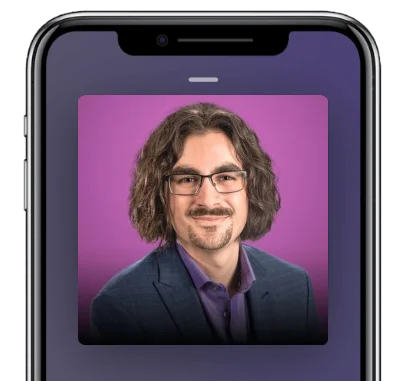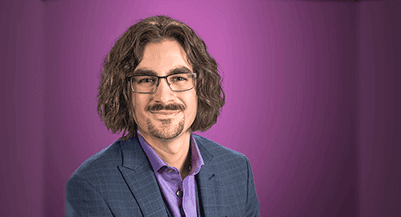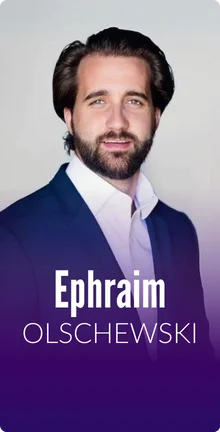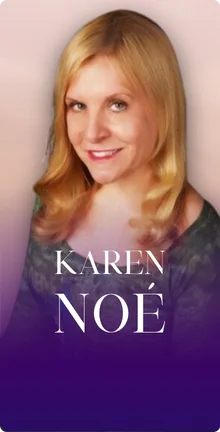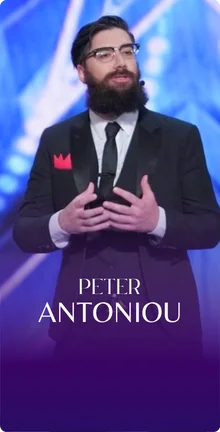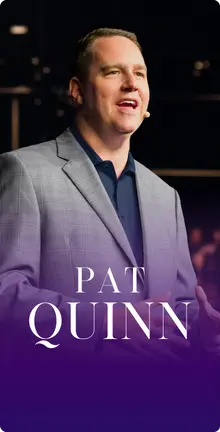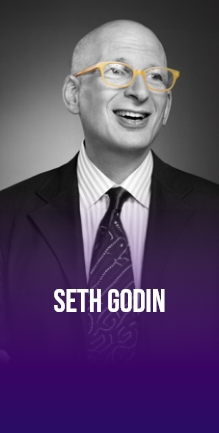In this Episode
- [00:30]Stephan introduces his guest, Brian Miller, an author and speaker on human connection whose Tedx Talks entitled How to Magically Connect with Anyone have been viewed 3.5 million times.
- [02:06]Brian compares his YouTube and podcasting strategies, particularly in terms of how he extends himself to his audience.
- [05:19]Brian provides a tip for anyone who wishes to start a Youtube channel or podcast.
- [09:09]Both Stephan and Brian discuss how they keep their engagement and interaction relevant.
- [14:00]Bibliomancy is simply selecting a book and letting that book help you find answers. Brian shares a book he had been meaning to read for years, which brought him back to where he first started–a magician.
- [16:54]Stephan and Brian discuss real-world applications of shufflemancy.
- [23:21]Magic can be in the form of everyday interactions with others. Brian refers to his book and the life lessons it offers.
- [25:46]Brian shares a pondering example of the way human connection is created from other cultures, which he learned from his friend.
- [28:40]Brian discusses the differences between a therapist and a life coach.
- [30:18]Stephan adds some key points about how to see other people’s perspectives by climbing an invisible wall of context.
- [33:54]Brian talks about tactical empathy and shares his perspective.
- [41:24]Brian considers himself to be a much better podcaster than a YouTuber. What makes podcasting so special to him?
- [46:35]Stephan recounts a touching story of recently encountered shufflemancy.
- [48:56]Visit conquerthereddot.com for coaching inquiries with Brian. You can also check out interesting topics and guests on his podcast beyondnetworkingpodcast.com.
Brian, it’s so great to have you on the show.
Stephan, thanks so much for having me. I’m excited to talk.
Yeah, me too. I’ve been looking forward to this for a while. I came about you just through some synchronistic events of just trolling around on YouTube looking for interesting things to learn about, such as the Riverside platform, which you’ve posted about on YouTube. I’m curious to hear, what is your YouTube specific strategy? How does it differ from your podcast strategy? Because I see them as two different things.
I think one of the worst things you can do if you run a podcast is just to post your podcast on YouTube.
Oh, yeah. I think one of the worst things you can do if you run a podcast is just to post your podcast on YouTube. I think it’s not what YouTube is meant for. It’s just like anything else in the world. It’s taking a look at, what is this medium and how are people engaging with this medium?
I am no YouTube expert. I am a much better podcaster than I am a YouTuber. But I can tell you that what YouTube does not like is long-form conversations, unless you are already famous. Ten years ago, you could build a long-form YouTube channel. Some of the people still doing it are the legacy people who were doing it before YouTube had whatever it is, 40 million accounts on there.
These days, for YouTube, this current season of my podcast, I’m only posting eight to 10-minute clips, a kind of a complete thought from an hour-long conversation on my podcast. I’m putting that video on YouTube and linking people to the audio for the full podcast. I’m just doing it just two different ways, and then creating micro-content from there for the other socials.
That’s cool. What sort of engagement do you do in other channels to get your audience to feel like they’re part of a tribe and part of a movement? How do you galvanize this audience so they’re not just passively consuming content, and then moving on to the next thing?
It’s a good question. It’s kind of the million-dollar question, isn’t it, when you’re in podcasting or anything like this? Podcasting is a very difficult platform, because it’s audio. It doesn’t lend itself to social media, which are predominantly visual mediums.
What I try to do is actually engage with people not directly with the podcast itself. I chat with people, I engage in the comments, I post stuff around the ideas that I talked about on the podcast, and I mention the podcast once in a while. But I don’t push people over to listen to the podcast.
For me, part of it is that my podcast isn’t monetized. It’s not part of my income strategy. It’s actually the only thing in my entire life that isn’t monetized, no ads, I don’t promote my own services on there, I just have conversations that I believe are worth having. For me, my goal in having a conversation is simply to make it an awesome conversation for the guests.
If you knew zero people, but the two of us were ever going to hear this, would it still be worth your time? And if the answer is yes, I’m thrilled. Then anything else is gravy. It has grown on its own, and gone out there, and done what it needed to do from there.
So much of the magic in this world is in conversations with people you’re not willing to talk to. Share on XRight. If you were to give one piece of advice to somebody who wants to start either podcasting or becoming a YouTuber having their own channel and creating their own tribe, what would it be? What would be the one thing that if that is done, either everything else becomes easier or not even relevant?
That’s a great question. I’ll pull from my whole two careers, one as a speaker and one as a coach, as you mentioned, coaching TED speakers, leaders on TED-style, talks things like that. The key to a TEDx talk or TED-style talk is the idea worth spreading.
Can you state in one sentence what your big idea is, who it’s for, and why it matters? Can you do it in a tweet? Almost nobody can, which is why TEDx accepts less than 1% of all applications. For context, Harvard accepts 5% of all applications, just to set that aside.
What I tell everybody is this is not just for TED talks. The reason TED has become such a popular platform among other things is that there’s an unbelievable clarity in being able to explain an idea in just 10 minutes or 12 minutes. It used to be 18, but now it’s 10 or 12. Every single TEDx application, the first question is, state your idea worth spreading in one sentence. Almost no one can do it.
What I tell people is this is not just for TED. If you want to run a podcast, if you want to run a YouTube channel, you want to build a “tribe,” you need to be able to state what you do or what you believe in, who it’s for, and why it matters in one sentence. If you can do that, lead with that. All your content, everything, should serve that.
Write that perfect sentence on a post-it note, on your whiteboard, or on your computer background.
Write that perfect sentence on a post-it note, on your whiteboard, or on your computer background. Every time you’re thinking about making a LinkedIn post, an Instagram post, or a podcast episode, ask yourself, this thing ‘I’m thinking about creating and posting, does it immediately and obviously support the idea worth spreading of my show, my business, or whatever?’ If not, why are you wasting people’s time? There’s too much information, there’s too much noise. Don’t add to the noise.
Only post something if it immediately and obviously supports your big idea. In that way, this idea becomes a north star for you. And because you’re so clear on it, and you lead with that, and all your content follows that, people, very quickly, they get it. They get what you’re about.
It’s why, Stephan, people like you can find me because of an audio tutorial training I made and go down the rabbit hole into my actual profession as a speaker, a podcaster, on human connection, all this stuff. Even when I do audio tutorials as a side hustle for fun on YouTube, my big idea is spreading human connection and creating a world where everybody feels heard, understood, and valued. It’s even there in my audio training.
That’s how people like you end up coming to me and going, I don’t even know how we first met, but somehow I ended up discovering your work. It’s always because of the consistency of my big idea. That’s my one piece of advice for people.
That’s cool. What is the exact sentence that is your one sentence?
For me, you might have a different sentence for each business, for each service, or things like that. You can find catchphrases to distill it down. The umbrella around all of my work is simply the sentence everyone deserves to feel heard, understood, and valued. That’s not as actionable, that’s kind of the catchphrase-ey way of saying it.
When it comes to my speaking and consulting career on human connection, I work with organizations, educators, and health care facilities, that believe everyone deserves to feel heard, understood, and valued, in order to attract world-class talent and generate sustainable repeat business. It’s something like that, depending on the industry, is the full sentence where you get what you do, who it’s for, and why it matters very clearly.
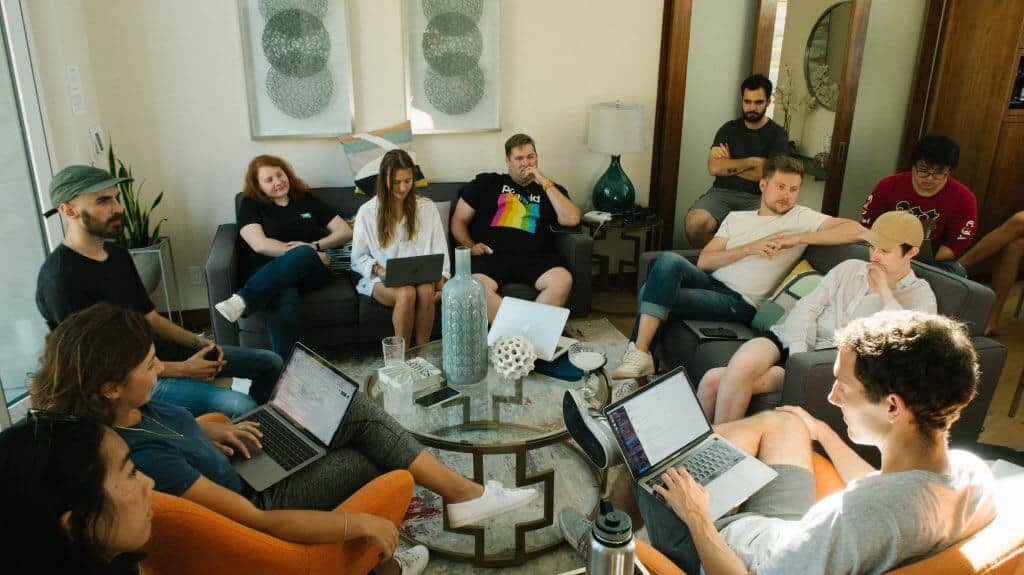
Yeah, got you. My statement or north star, I don’t know if it fits your criteria, but it’s how I govern my life. It’s just simply this, that if I’m about to either go on stage, get on on a mic, or just jump on a Zoom call with a client, prospect, or anything where I’m going to interact with people, I always think ahead of time, how is this opportunity going to reveal light? How am I going to reveal light? My sentence, I guess, would reveal light in absolutely everything I do.
Yeah. I love that. When I’m working with somebody on this, we get more specific. Let’s do it in real-time. This is fun. Let’s start with this. There’s a really simple formula.
When people end up working with me one on one, it’s not like I’m keeping the secrets for when they booked me one on one. It’s just that we do it together. All the secrets are out there. There are no secrets.
Here’s the formula. The formula is to action, so that outcome. This is a stupid, simple formula, but it’s incredibly powerful, because it gets you to focus on two of the three components that we were talking about earlier. It leaves out the who.
The who is easy, because you can figure out, if you know who specifically you’re talking to, you add the who into there, like educators or healthcare facilities, whatever it is what I’m doing. But to action, so that outcome. Your action was to reveal light. Go ahead, finish that.
The goal of connection is not agreement. The goal is understanding. Share on XReveal light so that the entire collective consciousness of humanity is raised.
Sure, something like that. That would be like a 20,000-foot view—kind of the general view of it. Then if you were actually doing that sentence in a way that made it feel personable to an individual, then you would work on your outcome. Essentially, you need to be able to say to an individual person, how does their life improve as a result of colliding with you and your big idea? That’s how you would do the outcome. That’s my number one version with that.
Another version of that would be to reveal light so that the person feels loved unconditionally.
Beautiful. To reveal light so that you feel loved unconditionally or so that everyone in your life feels loved unconditionally, something like that. The action is what you want someone to do as a result of colliding with you and your big idea. The outcome is how does their life improve or get better as a result of colliding.
I use the word colliding on purpose. I really think, just like how you said at the beginning of this, maybe it was random, everything random or nothing’s random, or whatever it is. The way people tend to have their lives changed by someone else or someone else’s content, I feel like it’s always a collision. It always feels like this moment where you smash face-first into a person or an idea you’ve never heard of before.
That moment of collision is really important.
Just like if you crash into a wall riding a bike, something has to change as a result of the collision. Some people go running away, they hide. They want to pretend it never happened, but that’s a decision. That’s a big change now, because they’ve encountered something and then decided not to pursue it. Or they smash into it and they go, okay, I’m going to follow this through and see what happens. That moment of collision, I think, is really important.
Yeah, I like that term collision. Also, what you were telling me about these collisions, their opportunities to go down a different pathway. It just made me think of this term I learned last year called shufflemancy. It’s kind of a strange word, but it also correlates to another term that I learned last year called bibliomancy.
I first learned about bibliomancy in an interview like this, but with Yanik Silver. I don’t know if you know him, but he’s amazing. He’s the founder of Maverick, the mastermind, and an internet marketer, really successful.
His interview on my other show was really fascinating. We talked about this concept where you can open up a book with intention, of course. You open up a book and that is exactly what you needed to read at that moment.
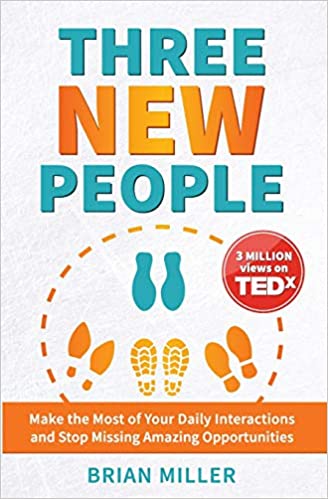
Have you ever had that happen to you, where you feel you’re on to pull a book out of the shelf, or to pick up a book at the bookstore, or whatever? Either nothing is random or everything’s random. You randomly open it up and find that that is exactly the thing you needed to read at that moment. That’s bibliomancy. Can you think of a moment where that happened to you recently?
Actually, yes, I can. It happened literally just the other day. I finally started reading a book I’d been meaning to read for years, which is a book called Magic is Dead by Ian Frisch. My background is as a full-time magician of 10 years. I don’t do much of it anymore. But once a magician, always a magician. That never leaves you.
I’ve been meaning to read this book. I was at 20 or 30 pages, good. But as a journalist writing about the world of magic, he dove into it for two years, and went undercover, and all this stuff. Then I’m 20 or 30 pages into it and there was a passage where he described the moment he stopped simply investigating this story and fell down the rabbit hole of magic.
He described it and it literally brought me to tears, because it brought me back to before I was a professional magician, before it was just this normal part of my life back when I was a kid, a teenager falling into magic and discovering my love of magic for the first time. Before it became a job, it’s something I had to do and all the things that come along with that. Literally in moments, it rekindled my love of magic, and just reminded me why that art form was something I dedicated my life to, and made me want to do more of it again.
That’s awesome. That’s beautiful. You can have these magic moments come just simply from the intention of connecting me to my bigger purpose or connecting me to more of who I am, my higher self, my more of a higher view of this reality and my experience of it.
I had this time of really profound meaning for me, where I was just simply driving my wife and little son who were asleep in the car. It was a long drive from Orlando to Miami. We live in Miami. I couldn’t play music or podcasts, because that would have woken them up.
I was just there with my thoughts and was thinking about when I went to 40 Years of Zen. It’s a neurofeedback program. It’s a week-long put on by Dave Asprey’s team. It unlocked memories from my childhood, some really beautiful positive memories. I just decided to ask for more. I prayed and asked for more of those memories without having to go through a week-long intensive program, and they just thought it through. It’s just amazing.
That’s awesome.
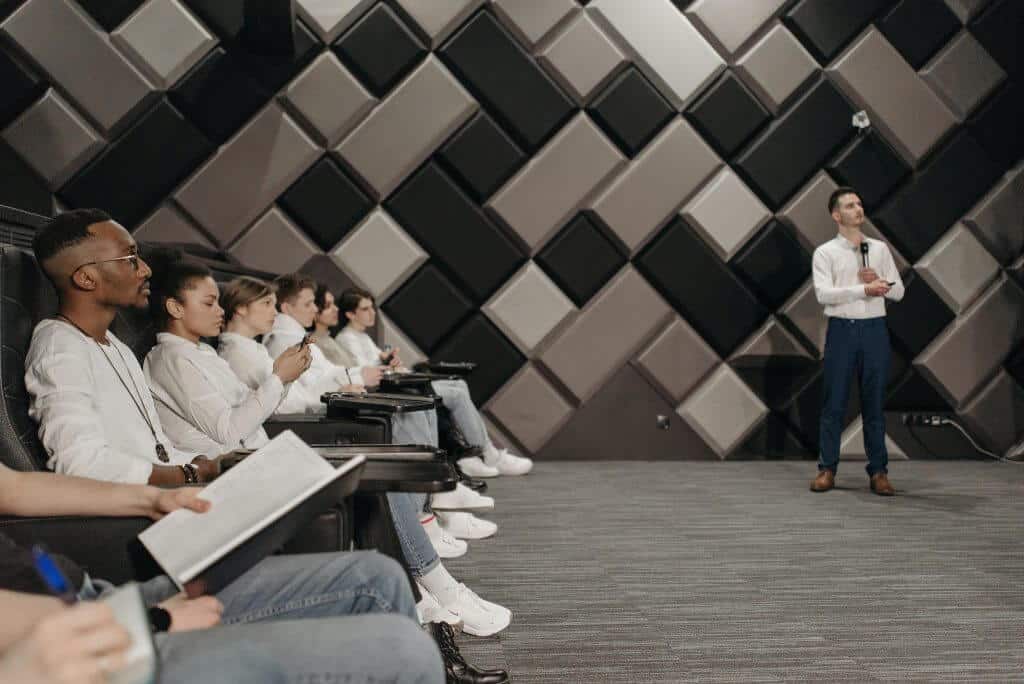
Just have this thought, and then you turn it into a request with intention and with the understanding that there’s more to this physical reality than just what meets the eye. You can tap into some really beautiful stuff over there on the other side of the veil.
Anyways, that’s related to what we’ve been talking about. I wanted to share with you this term shufflemancy and how that relates to bibliomancy. That is simply when you are online or you are just getting bombarded with seemingly random things, recommendations featured, whatever, videos, quotes, or whatever.
It’s exactly the thing that you are needing at that moment, what’s presented right to you. It could be in the form of what’s featured on the homepage. I went to edgarcayce.org last year. It was like March or April, and there was exactly the webinar that I needed to attend, and it just kind of popped off the screen for me. It was taught by Karen Noe, who was a guest on this podcast.
It was on how to receive messages from angels and departed loved ones. I’m like, I got to attend that. It was life-changing. Attending that webinar was life-changing. There were a whole bunch of other featured things on that homepage, but that was the one that was the shufflemancy that I needed to see.
Understanding isn't just a starting place; it's the ending and the goal too. A lot of really cool things happen if that's what you aim for. Share on XA lot of times, I’ll go to the YouTube homepage or my Facebook feed. There’s something there that just pops off the screen for me and I know that that’s meant for me. It’s not that dissimilar from opening a book randomly with intention and boom, there’s the thing that you need to see that’s going to move your life and your mission forward.
That happens online, too. It happens everywhere. Even in an event. You go to an event, you can only attend part of it, and boom, that’s the talk or that is the nugget that you needed to hear at that entire event.
Yeah, or you miss a part of a talk and end up having a conversation in the hallway that changes your life instead, which I feel like is part of what we’re missing in the last two years. The one major thing missing from virtual events is the in-between the stuff. I’m sure you have spoken at some 200 virtual events since March of 2020. I love them actually, I love the virtual space.
There’s lots of cool stuff about it, but the big missing thing is the in-between this, the randomness of it all. The chance for synchronicity is just gone, because you’re not going to bump into somebody because you had to run to the bathroom real quick. Then you didn’t want to open the door because you were afraid it would squeak, so you stayed out in the hallway for a second to wait for it to be louder in there, so no one would notice you. Then you have a conversation with someone you never would have talked to and blah, blah, blah.
The shufflemancy can actually be applied to the real world.
Yeah, that’s cool. I love that idea. The shufflemancy can actually be applied to the real world as those things are starting to come back.
Yeah. I was at the Genius Network annual event. That’s Joe Polish’s organization, and I’m a part of it. It’s a beautiful group of people. I spoke at the event as well. What an amazing group of people with a tribe. It was wonderful to be able to reconnect with them in person. I do miss that. I haven’t done a lot of in-person speeches. That was one just last week.
Great. I got off a call with someone this morning, who I think I’m going to end up doing an in-person speech for in just two weeks from now. They used to book out 10 months in advance, 15 months in advance. Now it’s like two weeks, because nobody knows what’s coming next. Can you be in New York in 13 days and keynote this conference? I’m like, I’m getting excited to be in the real world with people and have that happen again.
Yeah, awesome. If we are to go back to your formula, to action, so that outcome, I wonder if the outcome is actually to reveal light in everything I do or that you do, I’m directing that to someone else as an inspiration for them to action. Maybe that’s the outcome and not the action. Then the action is just around making choices, being mindful, or having intention. Have intention in everything you do, so that you reveal light in every place you go.
It’s so exciting to me what you just did, because it sometimes takes some of my clients two or three full hour-long sessions before they have the revelation you just had in real-time. So many times when I start working with someone, the thing that they think is the action of what they do or their talk they’re trying to give, actually is the outcome. That’s why they’ve been having trouble up until this point in many cases.
Getting that idea to spread is because they’re skipping steps. They’re thinking about the outcome, the thing that’s actually the outcome, they’re trying to do it first to try to say, reveal light everywhere. It’s like, wait, no, we can’t do that first. We got to take a step back. We got to get someone to change the way that they engage before light is revealed.
We got to get someone to change the way that they engage before light is revealed.
That’s a huge moment for a lot of people. They realize that that’s why maybe certain things in their business, their copy on their website, the talk they’re trying to give, or the ideas they can’t sell to their boss, aren’t working. Not to say that you’re not working, obviously you are, but this happens a lot, where the action is really the outcome. That was very cool. That was very cool to see you do that.
Thank you. I want to hear more about this whole magic side of you and how you bring this forward in everyday interactions and, of course, keynote speeches, YouTube videos, and podcast episodes, but also just in your everyday life, because life is magical.
We are magicians. This experience of life is so magical. You get all sorts. The more you open yourself up to receiving the magic, the more it shows up for you like angel numbers just show up dozens of times in a week for me. There are lots of things that someone would think are maybe a little out there or unusual, and become more everyday occurrences.
Another thing too is the more benevolent you are, the more the synchronicities show up. You keep working on being pure of mind and deed, and then you get this new level of synchronicity. It keeps just escalating. It’s just really cool, so I’m curious to hear more about the whole magician side.
In terms of the magic of everyday interactions, that’s what all this is for. I have a career speaking about this stuff, not because I think that we should be doing this on keynote stages, but because I’m trying to get people to do this in their lives. That’s what it’s for.
The subtitle of my book is Make the Most of Your Daily Interactions and Stop Missing Amazing Opportunities. That’s what this is all for. Like you said, there’s magic everywhere. The thing is, most people don’t realize all of the magic that’s around them because it comes in the form of conversations with strangers.
There’s magic everywhere. Most people don’t realize it because it comes in the form of conversations with strangers.
So much of the magic in the world is in conversations with people they’re not willing to talk to. I get it. I’m busy, you’re busy. We’re standing in line for coffee. We just want to get our damn latte and get out of there, because we got a meeting that matters later. We’re thinking about the fight we had with our mom last week, whatever it is right, or planning a fight we’re going to have with somebody later, which I feel like humans do way more than we should. Like planning out arguments in advance, which when you think of it, is part of the problem.
What we don’t do is we don’t take that step to actually attempt a meaningful connection with a stranger, or even with a colleague, a co-worker, or someone that’s not really close, but someone you see on a regular basis. The big problem for me is that we treat most of our interactions as transactions. This is the real problem.
It’s not that we don’t have enough time. A lot of people think I don’t have enough time. I’d love to connect with more people, but who’s got the time? You can make a meaningful connection in eight seconds if you really want to. It doesn’t have to take 40 years.
It can. It’s a different kind of connection to deeper kinds of connection probably. Although, sometimes you get people who’ve known each other for 20 years, and they’re not that much more connected than people who met an hour ago. It just depends on your intention in the relationship.
The key for me is to get away from these interactions as transactions, start recognizing every single person’s individual humanity for what it is, to be able to look people in the eye, and without saying a word, to be able to say, I hear you, I see you, and I’m here for you, even if we don’t always agree. If we did more of that, a lot of things would be better.
Yeah. Some cultures, that’s how they greet people as I see you. Wasn’t that in the movie Avatar?
Yeah. A dear friend, and a client of mine, and someone who’s also been on my podcast, Getrude Matshe. She’s originally from Zimbabwe.
I’m friends with her too.
She’s lovely. Getrude’s an incredible woman. She’s from Zimbabwe. She lives in New Zealand. I worked with her on her third TEDx talk or something. She’s given a bunch of them. She’s an incredible woman.
When we spoke on my podcast, she said so many things that I’ve found myself quoting over and over and over again for years since we did that one podcast interview. She talks about the language that is built in their native language in Zimbabwe. It was built into it. It was, I see you.
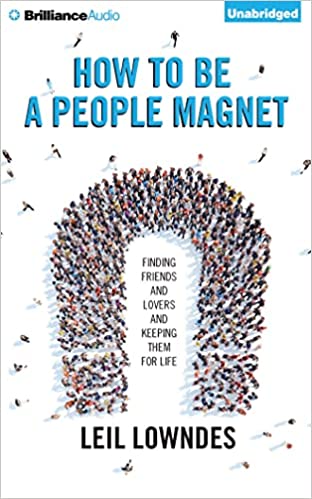
She said that there’s a common response built into their language, where in the morning, you say, ‘how are you?’ And the response is, ‘I woke up well if you woke up well.’ Think about that. I woke up well if you woke up well. When she said that to me, it blew my brain open, because you would never think of that in Western culture, in English, or in anything.
The point of that expression was, if you’re not okay, I’m not okay. All of us are stronger than any of us. We’re all in this together. If you can approach every person you meet and interact with that sense, I’m not okay if you’re not okay, so let’s make sure we’re all okay.
I think that it really changes the tone and it changes your willingness to have conversations with strangers if that becomes part of your mission to do that for other people, to give the gift of human connection in a world that is so lonely and so isolated.
Yeah. Getrude was on this podcast. She’s amazing. I just might add a couple of points to what you were saying about this concept of if you’re not okay, I’m not okay. I would be cautious about that stance, because we are all okay, all just as Ram Dass said, walking each other home.
If truly, we are all okay, we’re all divine, we’re all made from the same divine spark, we’re all interconnected, we’re all one, then we’re never not okay. Even though it might seem like we’re not okay at the moment, we haven’t zoomed out far enough to see the bigger picture to know that we really are okay.
If we modify the statement to something more along the lines of I’m okay and you’re okay or I’m enough and you’re enough, whichever order you prefer, I just think that that kind of knowingness is contagious.
Maybe. I have a real gut disagreement with that, though. I totally hear what you’re saying. I get where that’s coming from. I guess there might be a place that you and I are meeting in the middle or trying to say the same thing in different ways, which is, to me, it would feel very presumptuous bordering on arrogant to say to somebody else, no, really, you’re okay. You don’t know their circumstances, their perspective, their conditions, their mental state, their experiences.
My wife is a licensed marriage and family therapist. She works mostly with kids and at-risk families. One of the things that they learned in therapy, and it’s fundamental to being a therapist, is you can never truly understand the perspective of another person, which is why therapists don’t give advice, contrary to popular belief. They don’t. That’s not part of what therapy is.
Life coaches give advice. There’s a big difference. I am saying one’s better than the other, but different things for different people, whatever. I’m not saying all life coaches are bad. I’m saying it’s a different thing, but there’s a distinguishing factor there. You don’t give advice because advice is presumptuous.
Advice assumes that you know better than somebody else does about their own circumstances. I guess, where you and I might meet in the middle of this idea is that if your belief is that we are all okay, we just need to zoom out far enough to see it. Maybe I would approach interactions as a way of trying to ask somebody questions or let them open up in a way that lets them realize for themselves that they’re more okay than they thought they were. Let them be the facilitator for them to find that for themselves, is maybe how I would approach what you’re saying.
People create connections and build relationships over values and beliefs. Share on XGot you. I hear what you’re saying. I certainly don’t want anyone to feel not heard or that I come from a place of arrogance. That’s good feedback. One thing I’ve taken on very seriously, I heard from Ephraim Olschewski, who is also a friend, but also a past guest on this podcast, is that you need to climb this invisible wall of context that separates you from the other person. Get over on the other side into their world, see from their vantage points, walk in their shoes.
It only counts if they feel they’ve gotten by you. Not that you get them, but that they are ill-gotten. As long as you do that, then you have rapport, relatedness, and the connection, so then you can have a true conversation to really communicate. Definitely, that is important.
If the way that you model in your interactions with people is that I’m okay and you’re okay, even if you’re not feeling okay, not dismissing your feelings, not validating your world, but also coming from a place of certainty beyond logic, that’s from Kabbalah, then that is also contagious, I think. Maybe that is a meeting in the middle.
No, I’m totally with you on the invisible ladder or wall of context, whatever the way you say your friend expresses it. There’s a huge part of my work—I talk about it in a more academic sense. That’s a very poetic way to talk about it, which I love.
We are embarrassingly bad at figuring out the thoughts, feelings, and beliefs of others, even the people we’re closest to in the world.
My background is academic philosophy. I abandoned a PhD in philosophy of language to do card tricks for a living, which was a rough phone call home. It worked out 17 years later, here we are. But nonetheless, the technical term in psychology for what you’re describing there is perspective taking. It’s the ability to see the world from the point of view of another person.
Critically, the phrase perspective taking is kind of a misnomer. It makes people think that you should be taking on somebody else’s perspective. The problem is as we keep discussing, you actually can’t figure out their perspective. The first thing people try to do when this happens is they try to imagine—put yourself in somebody else’s shoes. Imagine what it would be like to be this person.
That’s a super useful exercise. It’s a creative exercise. It’s a good empathic exercise. But the problem is, we almost always guess wrong. There’s a ton of science and a ton of studies that show us this. We are embarrassingly bad at figuring out the thoughts, feelings, and beliefs of others, even the people we’re closest to in the world.
A spouse of 40 years was a little bit better than perfect strangers, but not as much as you would think embarrassingly low. The question is, if you want to take on someone else’s perspective, you want to walk in their shoes, you want to bridge the gap, how do you do it if we’re so bad at imagining? The answer is, you don’t guess, you ask. You ask people meaningful and relevant questions. You let them give you their perspective. Instead of perspective taking, it ought to be called perspective giving, perspective getting, or something like that.
I think we’re talking around a lot of the same concepts. This is maybe a more academic way for the people who are more academic minded to think about it. It’s like what Chris Voss would call tactical empathy. It’s empathy, but without emotion. Perspective taking is just a skill.
Perspective taking is just a skill.
That’s exciting to me, though. Some people are like, oh, you take the emotion out, that’s not as good. To me, it’s exciting that perspective taking is a skill because it means it can be learned, honed, practiced, and developed. Nobody’s born knowing how to do it or with the ability to do it. To me, that’s a good thing. It’s a growth commodity.
Yeah, tactical empathy. That’s great. I just saw Chris in the greenroom a few days ago. Before and after my speech, he went after me.
Oh, man, how was he?
He’s fabulous as always.
I love Chris. I had him scheduled to be on my show for April of 2020, and then the world fell apart, and we’ve never reconnected. I never managed to get him back on after the world changed and shifted. I’d love to have a conversation with him now, two years later in the pandemic, to hear some of this stuff. He was booked to be on my show, and then the world collapsed.
I can shoot him an email and give him a little nudge to be back on your show.
In any case, he’s awesome.
You get so focused on trying to get somebody to agree with you, to make sure your point is being adopted instead of merely understood.
He is awesome. Tactical empathy is awesome and being in their world, so that you can not just negotiate because that’s his area of expertise and focus, but also so that you can understand them and build a bridge with the person you’re in communication with. The concept of being interested to be interesting or take it even to another level and be fascinated to be fascinating.
Yeah. I love that. I say all the time, the goal of connection is not agreement. The goal is understanding. I do it too. It’s not like I’m some saint. We’re all human. You get so focused on trying to get somebody to agree with you, to make sure your point is being adopted instead of merely understood.
I think that when understanding isn’t just a starting place, but it’s the ending place, it’s the goal, a lot of really cool things happen if that’s the goal. Just to make sure that I truly, fully, and completely understand where you’re coming from, why you believe what you believe, why you’re doing what you’re doing, and you also do that for me. We may never agree, but we can have coffee now.
We can hang out. We can have a bite to eat or we can at least not come to blows. It’s really hard to get angry with someone when you totally get why they’re doing what they’re doing, even if you don’t agree with it.
To go full circle back to what you were talking about earlier, to action, so that an outcome, that’s the outcome, not the action, what you just described. Then the action might be to ask quality questions, open-ended quality, empathic questions.
Good call back.
Yeah. Then you’re actively building a bridge, so that the outcome is the state or this outcome that you just described.
Literally, you just wrote the idea worth spreading of my TEDx talk that I gave back in 2015, which back then, it was one of the top 100 TED or TEDx talks ever given. It was impossible. I could never plan for or predict that. Seven years later, there are hundreds of thousands of more talks.
The 3 million views in a year and in 2015, that was impossible. It was insane. The idea worth spreading, the actual outcome of my talk that I never stated outright in the talk, I never said this sentence in the talk, but it was what I was working with, was to take on perspectives that are different from our own in order to live in a world where everyone feels understood. That was my talk. It conquered the world. It was nuts.
Yeah. I love exactly the precise way that you conveyed the big idea. It reminds me also of this tiny little book I read 20 years ago called How to Be a People Magnet. The concept from the book that jumped out at me—I don’t think I read the entire book, but I read most of it—the bibliomancy that came out to me is called scribbling. It’s doing stuff outside of your comfort zone.
If you don’t have any interest in golf, go play around anyways. If you don’t like bowling, go bowling for an evening. Just have something outside of your normal sphere that you can talk with people who are different from you and have that shared experience kind of conversation, like, oh, you play golf, you play it every weekend, you love it, and it’s really part of who you are. That’s amazing.
I’ve tried it a couple of times. What’s your handicap? You can have a conversation again, where you’re interested. You’re interesting as a result. You’re not trying to be interesting, you’re just coming from a place of shared experience and curiosity from that place.
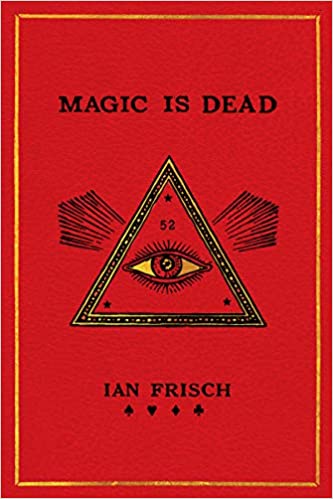
Yeah. When I get asked for actual practical conversation starters or advice for what to ask, okay, great. Meaningful, relevant questions, but what are those? How do I come up with those in the moment people go blank?
My number one favorite go-to fallback question, if you just can’t think of anything else to ask in a conversation, is what do you love about that? Whatever they just said, what do you love about that? They say, oh, I was golfing this weekend. I say, oh, you golf? What do you love about golf? There’s something beautiful that happens when you ask what do you love about that?
It gets them talking about that thing in a way that they may have never talked about, because they go, what do I love about it? They’ve never asked themselves. Nobody’s ever asked them that, they just do the thing. You’re an accountant? What do you love about accounting or being an accountant?
They go inward and they start to come up with things that sound like values and beliefs. That’s where you connect with people, over values and beliefs. Suddenly, you realize that a person that on the surface could not have been more different than you, some job career that’s so far different from you. It turns out that they’re in it for similar reasons that you do your thing or you find something at the very core fundamental that you actually have in common.
That’s my favorite question in a conversation. I ask it all the time. It’s hysterical when I give that advice at a keynote, and then it’s all I hear for the rest of the conference for the next few days. There’s people wandering around the conference. What do you love about that? What do you love about that?
Yeah, and then they use it on YouTube, like, I’m going to use it on you right now. What do you love about podcasting in a way that it’s not monetized? Because I have this podcast, it’s not monetized. I’m not pitching my services as an SEO expert. Every episode or even every 10 or 20 episodes, a lot of people will listen for a while, not even realizing what I do for a living or what my business is. I love to know what you love about.
What I love about running a podcast that is absolutely not monetized in any way, is that I owe nothing to anybody. In other words, there’s no conversations I have to have. There’s no topics I have to have. I can completely change course at any given moment. I can stop producing episodes for six months with no warning and no apology if I want to. It is mine and mine alone.
It’s important for me as a fundamentally creative person to have something in my professional life that is creative, purely in the way that I want to be creative, whatever that looks like to me at that moment. You go further into being self-employed and running a business. You start to realize that you know how to monetize things, so you start to monetize everything.
What I love about running a podcast that is absolutely not monetized in any way, is that I owe nothing to anybody.
We get excited. We go, well, I could run ads off of this and I could promote a service over here. I can make an on-demand course and I could do this. It’s cool, yey. We learned how to make money, support our families, and take cool vacations. But suddenly, when you’re monetized, you owe something to somebody. There’s an expectation. It changes how you engage with the thing when there’s an expectation that’s external to you.
For me, what I love about my podcast is purely for me and the guest. Honestly, I care about my audience. I care about the listener, but I care about my guests first. When you’re monetized, you have to care about the listener first. It’s not that that’s bad or wrong.
And the sponsor.
And the sponsor. Right. In other words, you have to care about the listener, because the longer they listen, the better the sponsor does, et cetera. That’s what I mean. Suddenly you’re performing a conversation for the sake of somebody else, as opposed to having a conversation.
I want to have conversations. Like I said earlier, I want the guests to feel like if you knew zero people were ever going to hear this, but the two of us, would it have still been worth an hour of your time? When you say that to somebody who’s a multi-million dollar CEO, when somebody who’s very busy and is giving you an hour, to be able to have a conversation that would be worth their time, even if nothing ever came of it, that’s really powerful. That’s the connection.
Yeah. I find that the folks I’ll talk to in a conversation like this in a podcast interview, sometimes become clients. It wasn’t an intention or a strategy. It was just me doing my thing to help add value and be the change I want to see in the world.
Yeah. They might become clients, they might become friends, they might become collaborators, they might become your biggest cheerleader. Some people who’ve been on my show have never hired me or booked me directly, but they’ve recommended my show, my name, or my work to dozens of people that end up going on to hire me. If I were actually trying to make any of that happen, it wouldn’t be happening like that, or it’d be happening very differently, or the conversations would feel different.
I just got on to have a chat. That makes sense. You asked me before we started this, what would be a great use of my time in this podcast? I said, I just want to have a good conversation. I said that before the cameras were rolling. That’s how I feel about my own show, too.
Yeah. Another thing that happens when you’re in these genuine, heartfelt conversations in a podcast episode is connections start getting made in the person, like the host’s mind. Like, oh, I could connect Brian with Peter, for example. That just came to my consciousness, Peter Antoniou.
He’s amazing. He was on America’s Got Talent. His shtick or whatever was to do mind reading. It was incredible. He just nailed it. He read the minds of the judges live and in front of everybody. It was astounding.
I had him on this show. We talked about things like intuition and stuff. He’s got an amazing stage presence about him. He’s really heartfelt, genuine, just a really nice guy, and trained in magic and things like that as well. I think you guys would hit it off. If you’d like, I can make a connection.
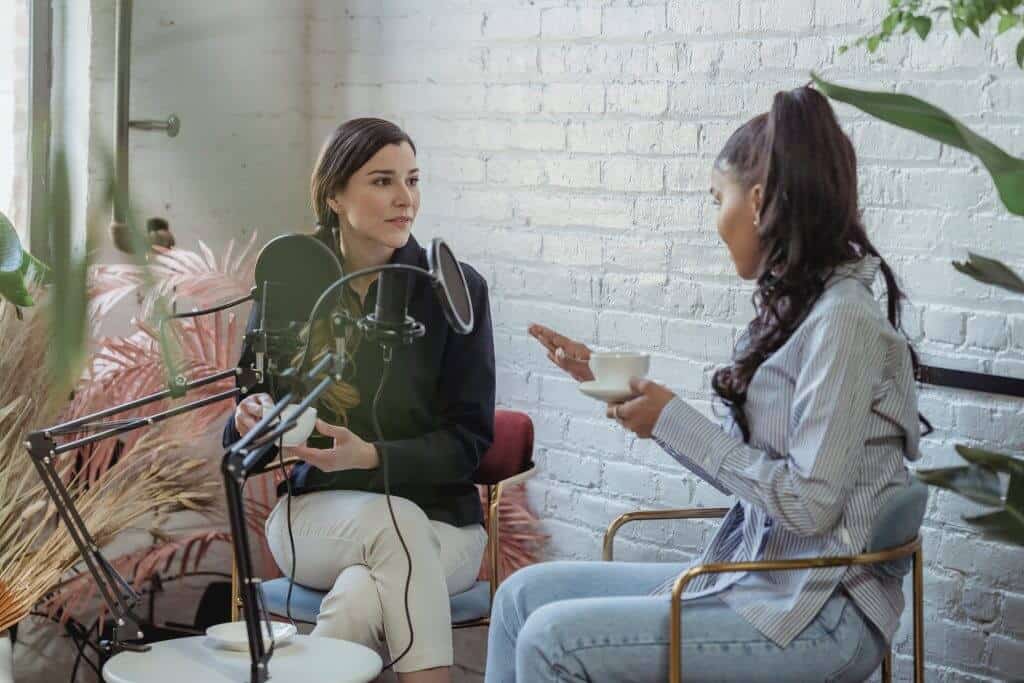
I’d love it. I love meeting any interesting people, especially people in the weird subset of art forms that is magic and mentalism. We are a special set of geeks.
Yeah. This podcast actually used to be called The Optimized Geek, and then I changed it. I didn’t want to alienate people who didn’t identify as geeks. I wanted everybody to be able to be part of this tribe and not feel like an outsider.
Anyways, there’s one story here that I thought I’d share for you and for our listener, because I do also think in terms of how I can change the listener’s life while I’m doing the episode. This is a really cool story I came across just the other day, another shufflemancy example.
I’m going to read it as if I’m the person, but I’m just literally reading it.
“I was in Dollar Tree last night and there was a lady and two kids behind me in the long line. One was a big kid and the other was a toddler. The bigger one had a pack of glow sticks and the toddler was screaming for them. The mom opened the pack and gave him one, which stopped his tears. He walked around with it smiling, but then the bigger boy took it. And the toddler started screaming in.”
“Just as the mom was about to fuzz, the older child bent the glow stick and handed it back to the toddler. As we walked outside at the same time, the toddler noticed that the stick was now glowing, and his brother said, I had to break it, so that you could get the full effect from it. I almost ran because I could hear God saying to me, I had to break you to show you why I created you. You had to go through it, so you could fulfill your purpose.”
“That precious child was happy just swinging that unbroken glow stick around in the air, because he didn’t understand what it was created to do, which was glow. There are some people who will be content just being, but some of us are chosen. We have to be broken. We have to get sick, we have to lose a job. We have to bury our siblings, parents, best friend, or our child.”
“In those moments of desperation, we were broken. But when the breaking is done, then we’ll be able to see the reason for which we were created. So when you see us glowing, just know that we have been broken.”
This came to me to share this when we were conversing about our little disagreement about whether the person that we’re talking with is okay or not okay. Of course, zoom out far enough and we are all okay. That denies their reality at the moment of feeling completely broken, so I wanted to share that.
The ultimate goal in having a memorable conversation is to make it an awesome exchange for the guests. Share on XBeautiful. Thank you for sharing that.
I know we’re out of time here. If our listener wanted to work with you on coaching to give their own amazing TEDx talk, if they wanted to work with you, it seems like you could do amazing things for their mindsets and for them to uplevel in their business or career, how would they get a hold of you? How would they get you to do a keynote speech? Where should they go?
Yeah, thank you, conquerthereddot.com is the place to start. If you’re interested in coaching, that’s where you can schedule a discovery call. We can talk about what it would look like for you to give a TEDx talk. I’m very discerning with who I work with.
The discovery call is really a way for me to decide if your idea is close enough that we can actually work it into a TEDx talk. If it’s not, I’ll tell you what you need to do, and send you off, and you can come back at some point when it’s closer, because you need to work with people whose ideas actually potentially could make it to a TEDx stage, and then get it there. So, conquerthereddot.com.
That’s also how you will get in touch with me if you are interested in broader coaching. I work with some people not just on TEDx, but to do their TEDx talk, and also build a thought leadership platform to get into professional speaking, podcasting, and build a career out of what you and I do, thought leadership, whatever that means. That’s a term I wish we had a better term for. I hate that term, but it is what it is.
When someone says that at a cocktail party, what do you do? You can’t say, I’m a thought leader. We need a better term.
Results leader would be better than that.
Yeah, right. Yeah, that’s the wider context. That is not listed anywhere on the site. It’s something I only offer to people in a conversation, where it makes sense to offer it to them. I don’t list that program anywhere. It’s full at the moment you and I are talking, but who knows when people are listening to this. So, conquerthereddot.com is a good place to start.
Okay, awesome. Then your podcast if they want to start listening.
Yeah, beyondnetworkingpodcast.com. The podcast is called Beyond Networking and all the kinds of cool people that you would enjoy. If you listen to Stephan, you would probably enjoy my show, Seth Godin, Cal Fussman, all the lovely Shama Hyder and Heather Monahan, and all the cool people I get to have cool conversations with just like you do.
That’s awesome. Seth’s been on this podcast.
I had a feeling you and I could talk about our mutual love of Seth. I avoided mentioning him, because I didn’t want to go down a rabbit hole.
Fun times. All right. Thank you so much, Brian. Thank you, listener. Get out there and reveal some light. Connect with people and make them feel loved. We’ll catch you in the next episode. I’m your host, Stephan Spencer, signing off.

